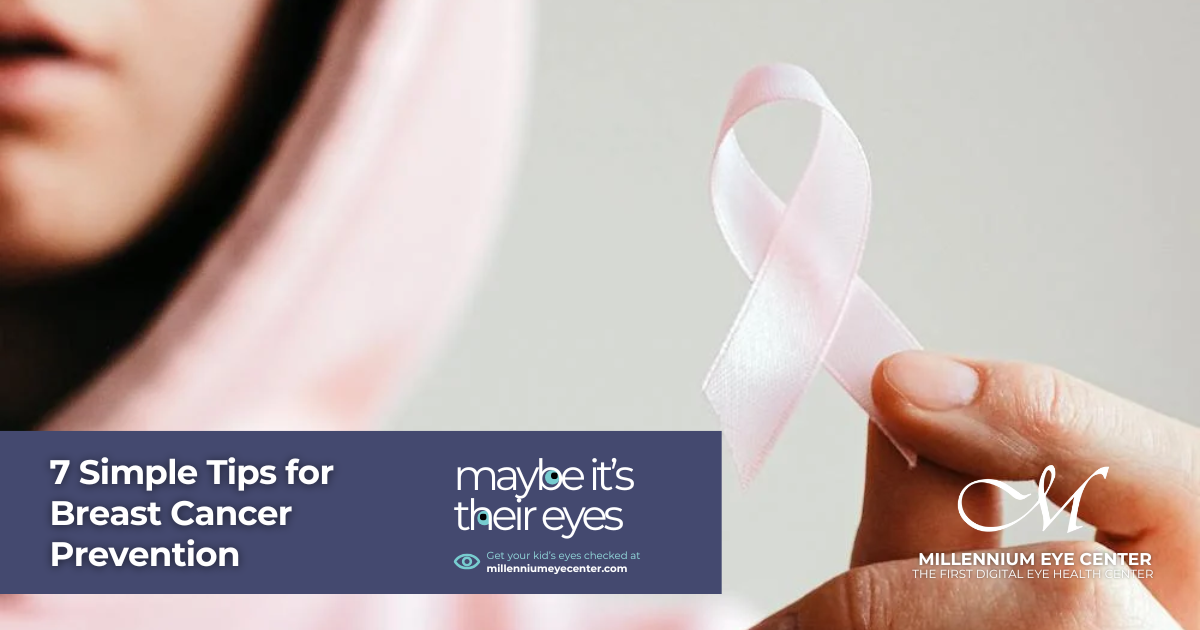7 Simple Tips for Breast Cancer Prevention
At Millennium Eye Center, we care about your whole health, not just your eye health. That’s why we’re excited to share these simple, everyday tips for breast cancer prevention. While we may be your go-to experts for vision care, we believe in empowering you to make choices that support your overall well-being too.
Here are 7 easy steps you can take to reduce your risk of breast cancer:
1. Eat a Balanced Diet
A diet rich in fruits, vegetables, whole grains, and healthy fats can make a big difference in your health. Try to eat a rainbow of colors every day—each color provides different nutrients that protect your body. Research shows that certain foods, like leafy greens and berries, can help reduce cancer risks.
2. Get Active
Physical activity doesn’t just make you feel good—it can help lower your cancer risk, too. Aim for at least 30 minutes of exercise most days of the week. This can be as simple as going for a walk, dancing, or stretching.
3. Maintain a Healthy Weight
Keeping your body at a healthy weight is one of the best things you can do for cancer prevention. Obesity, especially after menopause, is linked to a higher risk of breast cancer. Regular exercise and a balanced diet will help you keep your weight in check.
4. Limit Alcohol
Studies have shown that alcohol consumption can increase the risk of breast cancer. If you drink, try to limit yourself to no more than one drink per day.
5. Don’t Smoke
Smoking increases the risk of many types of cancer, including breast cancer. If you smoke, try to quit. There are many resources available to help you stop smoking for good.
6. Know Your Family History
Some people have a higher risk of breast cancer due to genetics. If breast cancer runs in your family, make sure to talk to your doctor about your risk factors. You may benefit from genetic testing or more frequent screenings.
7. Get Regular Screenings
Mammograms and regular breast exams are essential for early detection. The earlier breast cancer is found, the better your chances for successful treatment. Be sure to talk to your healthcare provider about when to start screenings based on your personal risk.
Taking these small steps can help reduce your risk and keep you feeling empowered about your health.
Download our Breast Cancer Prevention Guide for more tips and to learn how you can take charge of your well-being!
Click HERE to download the guide.
Disclaimer: This information is for educational purposes only. Optometrists are not licensed to diagnose or treat breast cancer. Please consult your primary care provider or an oncologist for professional medical advice.

